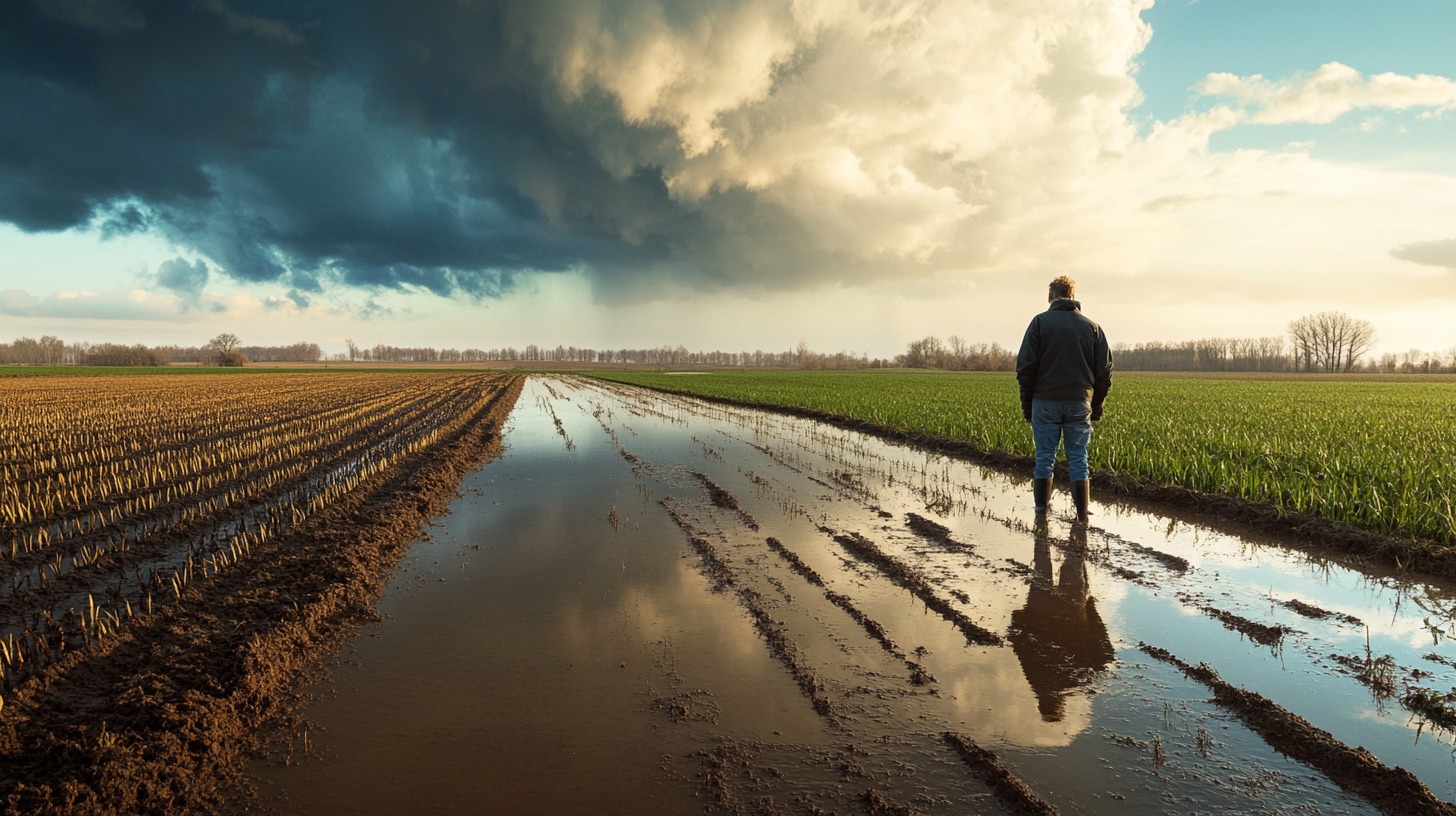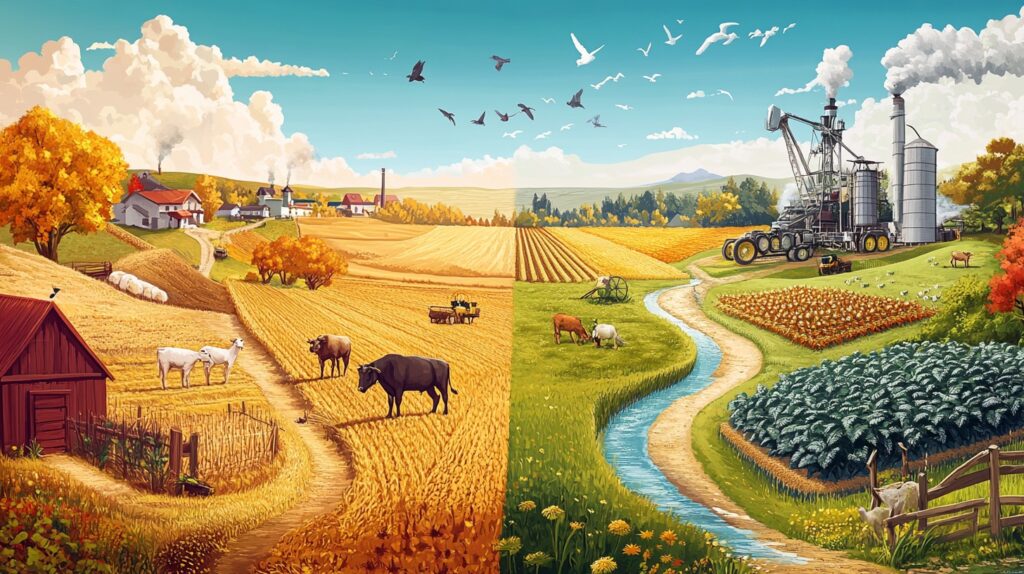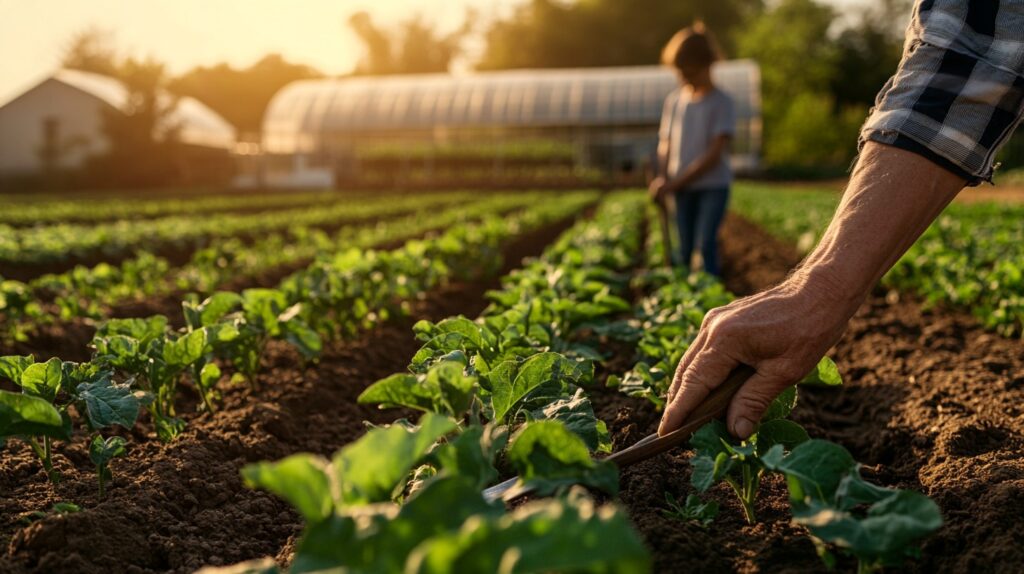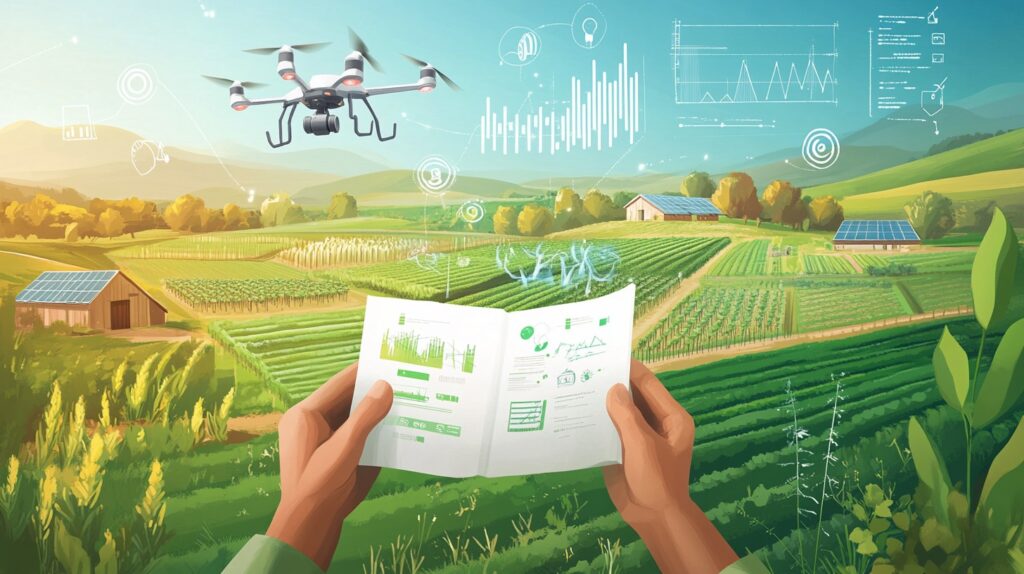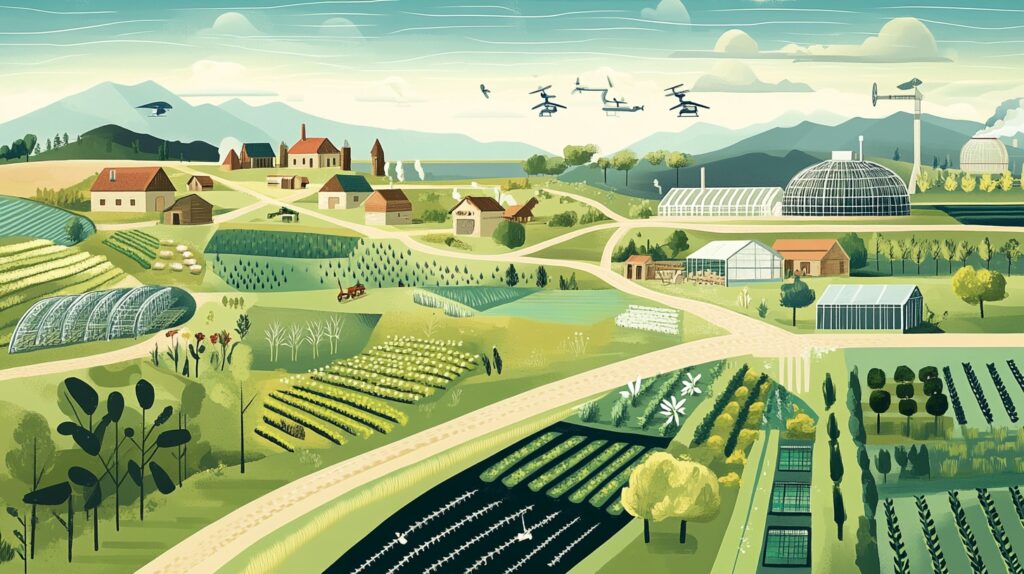“Understanding the interlinked relationship between Climate Change and Agriculture” post is an introduction to the EU Funded project named “Intergenerational Hub for the Amelioration of Sustainable Agricultural Practices and Entrepreneurial Mindset” with the reference number 2022-1-DE02-KA220-ADU-000085106. This blog post explores the vital role of Intergenerational Learning in Agriculture and showcases how it can transform farming practices for a sustainable future.
L4Y Learning for Youth GmbH coordinates it with the partners KMOP, Polish Farm Advisory, Citizens in Power, Challedu. Here is the home page of the project.
Introduction
The world is facing escalating challenges due to climate change. Agriculture stands at the forefront of this battle. This sector not only feeds the global population but also significantly influences the health of our planet’s ecosystems. The relationship between climate change and agriculture is intricate and symbiotic. Changes in climatic conditions directly affect agricultural productivity, while agricultural practices impact the climate. This examination delves into agriculture’s dual roles as both a contributor to and a casualty of climate change. It explores how this critical sector can navigate a warming world’s challenges to ensure food security and sustainable development.
The Interplay of Agriculture and Climate Change
Climate change presents a significant challenge to agriculture, impacting the environment and agricultural communities’ livelihoods worldwide. There is a multifaceted relationship between climate change and agriculture. Understanding this phenomenon and its consequences is crucial. We should highlight that human activities releasing greenhouse gases are the main reason for climate change. Natural variations in climate do occur. However, anthropogenic factors have mainly driven the accelerated pace of climate change since the Industrial Revolution, marking our entry into the Anthropocene era.. It is important to note the significant distinction between the natural greenhouse effect, which sustains life on Earth, and the enhanced greenhouse effect. The latter is caused by increased concentrations of greenhouse gases from human activities, such as agriculture.
Agricultural Contributions to Greenhouse Emissions
Additionally, agriculture significantly contributes to greenhouse gas emissions. The sector accounts for a notable portion of global emissions. Despite a slight reduction in the agricultural share of emissions over recent years, its impact remains substantial. Thus, it is important to improve the methods of reducing greenhouse gas emissions in the agricultural industry to combat the negative impacts of climate change.
Climate Change Impacts on Agriculture
Also, the impact of climate change on agriculture should be emphasised, to understand its consequences. The effects of climate change on crop yields and production, both observed and projected, on a global scale should be explained. This includes citing the biological impacts on major crops. These effects manifest through alterations in temperature levels, rainfall patterns, and the proliferation of pests and diseases. Consequently, farmers face challenges in adapting their practices to the changing climate, impacting their incomes and investment capacities.
Socioeconomic Effects of Climatic Changes on Farming
Moreover, the social and economic ramifications of climate change on agriculture are profound. Reduced agricultural productivity directly affects farmers’ livelihoods, leading to economic hardships and necessitating adjustments in agricultural practices. A a broader level, fluctuations in prices of agricultural commodities can have far-reaching impacts on the entire food chain, ultimately affecting food security and exacerbating socioeconomic disparities, particularly in regions that rely heavily on agriculture.
Addressing the Climate Challenge in Agriculture
Finally, the pressing issue of climate change poses a significant threat to both food security and malnutrition. The relationship between environmental sustainability, agricultural production and human well-being is closely interlinked. Indeed, the disruption of agrifood systems by climate change is hindering efforts to alleviate hunger and malnutrition, which is in turn jeopardizing progress towards the sustainable development goals.
In essence, the connection between climate change and agriculture is complex, highlighting the need to take action quickly to protect both the environment and farmers’ livelihoods as climate challenges continue to increase.
Conclusion
The interdependencies between climate change and agriculture highlight the urgency for adaptive strategies that enhance both environmental sustainability and agricultural productivity. As climate change effects intensify, the need for innovative solutions becomes critical to reduce emissions and enhance resilience.It is vital to strengthen agrifood systems. This ensures food production and secures livelihoods for those dependent on agriculture. Progress in sustainable development goals relies on comprehensive strategies. These strategies must tackle the complex challenges of climate change in agriculture. Encouraging sustainable practices and investing in climate-smart technologies are key steps toward a resilient agricultural future that supports the planet without worsening environmental issues.
If you want to read more on the topic, please read our Pedagogical Guidebook here.

